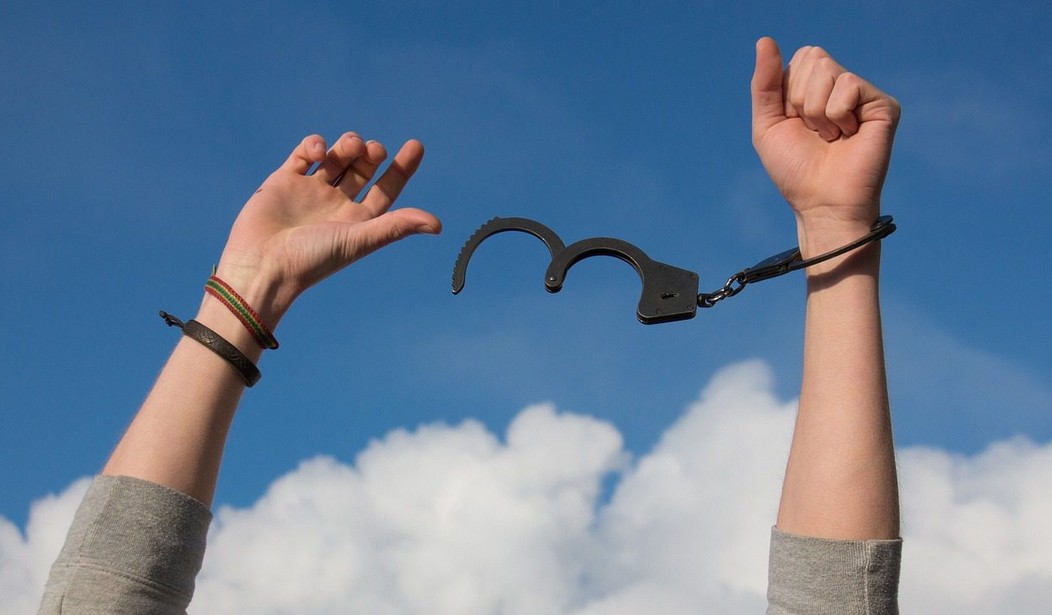Mekhi Darville didn’t have a beef with any of the guys hanging around the Fuel Smart gas station and convenience store in Gonzales, Louisiana a couple of weeks ago. The high school senior was just in the wrong place at the wrong time, caught in the crossfire when shots were fired. Police haven’t officially charged anyone with Darville’s senseless killing, but they have arrested three teens on charges of being principles to second-degree murder; including one individual who should have been behind bars instead of out on the street on November 11th.
18-year old Jamal Holloway isn’t a stranger to police in Ascension Parish. In fact, up until late October he’d been living in a cell at the parish jail awaiting felony charges of aggravated assault with a firearm. Just a few weeks before Darville was murdered, however, Holloway was given a slap on the wrist and set free.
According to a bill of information, Ascension prosecutors had accused Holloway of felony aggravated assault with a firearm against another male in late February.
In an agreement between Holloway’s defense attorney and prosecutors, he pleaded guilty Oct. 24 to the reduced charge of misdemeanor aggravated assault.
After the plea, Judge Cody Martin gave Holloway a suspended sentence of six months in prison with credit for time already served and six months of unsupervised probation.
A little more than five months before that plea, in mid-May, Judge Martin had also allowed Holloway’s father to take him for an interview with the Louisiana National Guard’s Youth Challenge Program. It is a 17-month boot camp-style alternative education program for troubled teens.
Holloway stayed in the program about a month and a half, from July 10 to Aug. 23, at Camp Beauregard near Alexandria before he left, a National Guard spokeswoman said. He did not finish the program’s first, five-month residential phase at the camp.
Sheriff’s records show he returned to parish jail on Aug. 23 until his release Oct. 26.
Three weeks later Holloway was allegedly part of the groups beefing outside the gas station, and when he was arrested two days later police found a stolen gun on him; a firearm that so far has not been connected by police to Darville’s killing.
Holloway’s now facing a number of charges, including possession of a stolen firearm, but not felon-in-possession, because Holloway isn’t a convicted felon thanks to the sugar-sweet plea deal he was given. Just a few months behind bars, a failed effort at boot camp, and six months of unsupervised probation.
If any gun control activists in Louisiana deign to acknowledge Mekhi Darville’s murder, it will only be to criticize the state’s gun laws and demand the enactment of universal background checks or a “red flag” law. Forget about ensuring consequences for violent crimes. For the gun ban crowd, the answer always lies in creating new criminal offenses out of the right to keep and bear arms.
To be sure, prosecutors haven’t said that Holloway was the individual who pulled the trigger and fired the shot that ended Mekhi Darville’s young liife. But prosecutors also haven’t explained why they took an 18-year old charged with a serious violent felony and let him off the hook without even requiring him to undergo supervised probation; an inexplicable decision given his age and the original charge of aggravated assault with a firearm. More importantly, just how common are plea deals like this? Across the country about 97% of cases end in plea bargains; some of them undoubtably justified and arguably the result of overcharging in the first place. But there are also far too many examples like Holloway’s, including the suspect in the UVA shooting, whose felony hit-and-run charge was reduced to a misdemeanor and a suspended sentence; and the suspect in the Q nightclub shooting, whose felony case was apparently dismissed and sealed by the courts. As a result, both were able to legally purchase firearms, while in this case Holloway was apparently able to acquire one through theft or the black market.
The common denominator is that all three were able to get ahold of a gun because they had been given a break by the criminal justice system; a fact that most of the media, the vast majority of Democrats, and the entirety of the gun control lobby would rather ignore.









Join the conversation as a VIP Member